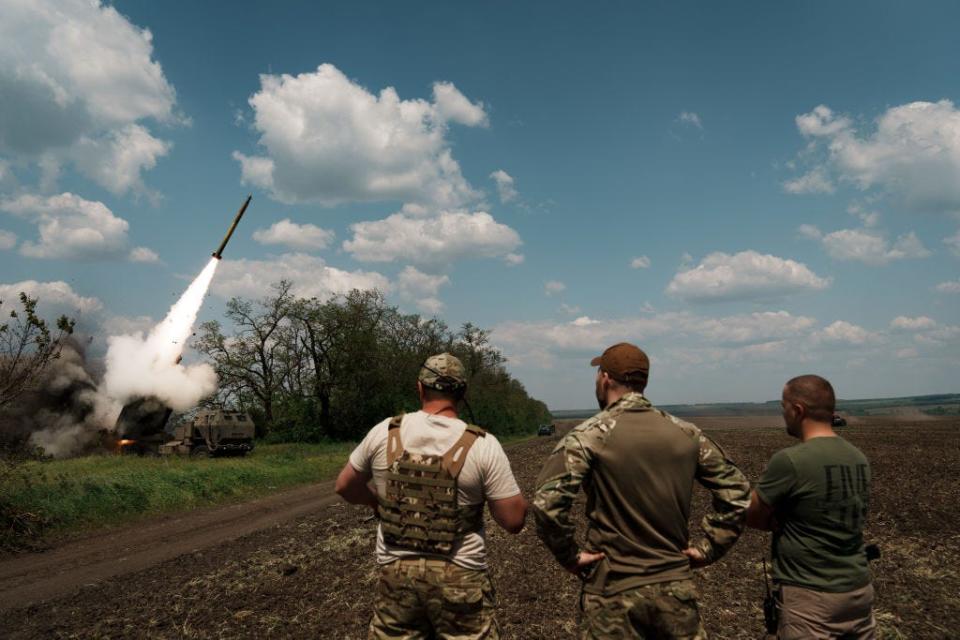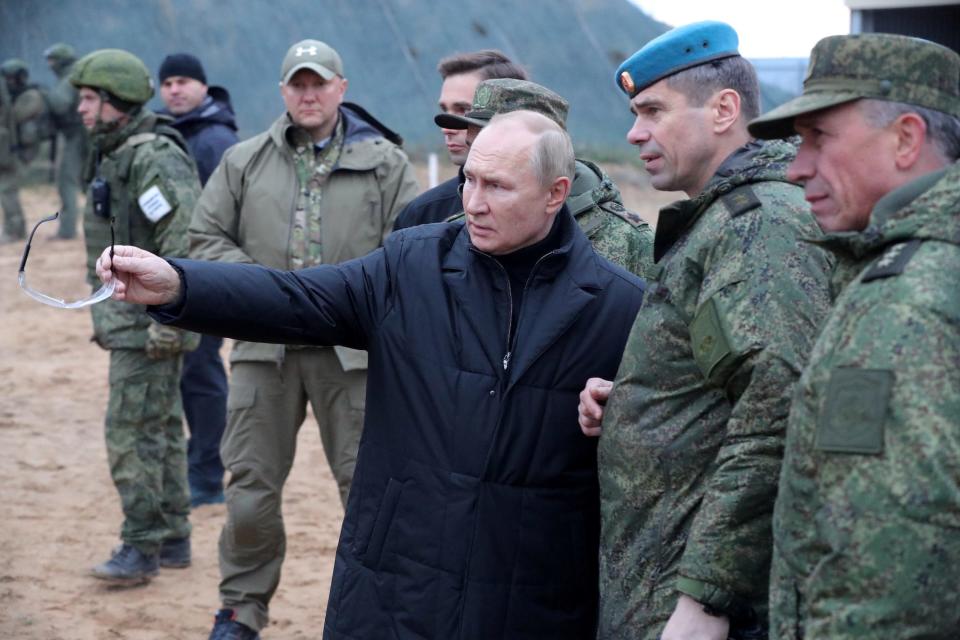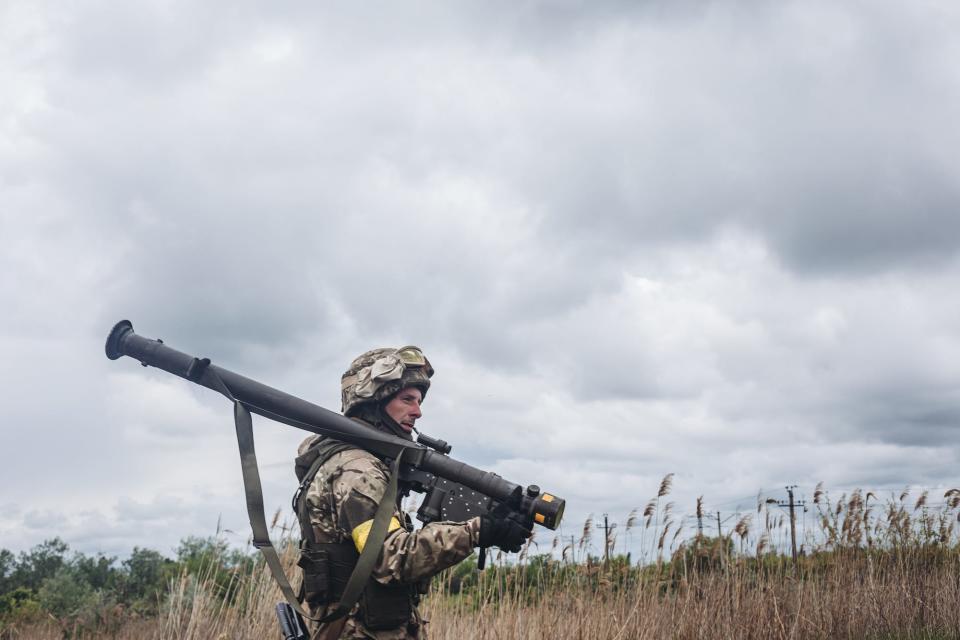Russia has forced the West to ramp up production of older weapons — even gear it wasn't making any more
Demand and production of Western weaponry has gone way up.
This includes gear that has been around for decades, and even some where production had stopped.
Nations want to aid Ukraine and grow their own arsenals, but experts say too little is being made.
Russia's invasion of Ukraine has resulted in a surge in demand, orders, and manufacturing of Western weaponry, including decades-old equipment and even gear that had gone out of production.
The invasion has sparked concern across the West that its militaries do not have enough ammunition and equipment if a major power like Russia decides to attack them.
And also that some particularly key types of weaponry are in worryingly short supply.
Manufacturing has increased, but experts warn it's not enough for Western countries' needs — both for themselves and for what they want to give to Ukraine.
Jan Kallberg, a senior fellow at the Center for European Policy Analysis and a fellow at the Army Cyber Institute at West Point, describes weapons orders as having been relatively low.
"And suddenly they see a surge in sales, a need, a demand that I would say hasn't been seen since the forties or at least the fifties when the Cold War really took off," he told BI.
More orders and manufacturing
Western defense budgets are surging, while countries in the Middle East are also increasing their spending amid conflicts in the region.
The result is more orders and manufacturing, even of Western equipment where production had stopped.
In January, the US Army signed a $50 million contract to restart production of M777 howitzer parts — the first new order in five years — to be sent to Ukraine.
Norway plans to invest to improve the delivery times of its National Advanced Surface-to-Air Missile System (NASAMS), with demand up in Europe.
The US Army also placed a new $1.9 billion order for High Mobility Artillery Rocket Systems (HIMARS), which have been used successfully in Ukraine.
Its maker, Lockheed Martin, is increasing production as well as its production of the antitank missile system.

German arms maker Diehl is planning to increase production of the IRIS-T air defense system, while France has ordered companies involved in making Aster air defense missiles to prioritize those contracts.
Demand for the Patriot surface-to-air missile system, first used in the 1990s but upgraded since, has also dramatically increased. This includes a coalition of European countries jointly ordering up to 1,000 missiles earlier this year.
Lockheed Martin said production of Patriot missiles has increased from 350 a year in 2018 to 500 last year and 550 this year.
Timothy Wright, a missile technology expert at the International Institute for Strategic Studies, said the size of the production increase compared to actual demand shows industries and governments have not responded enough.
"I don't think we are learning the whole entire lesson just yet," he said.
The US seems aware of the backlog, with the Financial Times reporting last month that the US is halting open orders for Patriot interceptor missiles until Ukraine is better supplied.
Mark Cancian, a defense strategy expert at the Center for Strategic and International Studies, said many new orders are for air defense systems.
The West had stopped investing in them after the Cold War when it ceased to see Russia as the primary threat, he said, but now, seeing Russia's missile and drone salvos, demand is back.
Ready for Russia
Western militaries have not spent the last decades building their arsenals with a major adversary like Russia in mind, experts warn.

Russia has one of the world's biggest militaries and its war in Ukraine shows it is willing to commit to a grinding, brutal fight where it incurs a lot of losses.
Russia has also ramped up its wartime production, which could aid it in the future and not just against Ukraine.
Some European countries have warned that Russia could soon attack another European nation if it is victorious in Ukraine.
That would likely drag the US into a wider war, due to NATO's collective defense clause.
Slow progress
Ukraine has used lots of different weaponry in its fightback against Russia, and has seen notable successes despite not getting the West's most advanced or modern gear.
Mattias Eken, a missile defense expert at the RAND Corporation, said the West will be "reassured" by how its equipment is "working and sometimes pulling off quite amazing things."
But, he warned, "the problem is mass."
Ukraine's allies want enough equipment both to give more to Ukraine and to boost their own arsenals.
That dual need has been a problem for Ukraine. Some European countries have cited the need to keep their own arsenals full when saying they could not give more to Ukraine.
Talking about air defenses, Cancian said: "Everyone agrees that there aren't enough. They sped up production to a degree, but there's a limit to what you can do."

Giorgio Di Mizio, an air warfare expert at the International Institute for Strategic Studies, said the problem is demand compared to capacity, not countries' unwillingness to spend.
Making new equipment takes time, and there are long backlogs.
Industry production will need to ramp up more significantly to address the issues.
But Kallberg said the industry needs guarantees. "If you were an executive in the defense industry, you would ask yourself: 'If I ramp up all my production now, what type of commitment can I get from governments that they will keep buying?'"
One solution would have been countries ramping up their orders and production earlier in the war, Di Mizio said.
"Maybe governments thought of this war as a short-term issue," he said. But he said it was easy to criticize now, with hindsight.
He also said the defense industry had a way of working that was more suited to peacetime than war, "and we haven't made changes."
Read the original article on Business Insider

